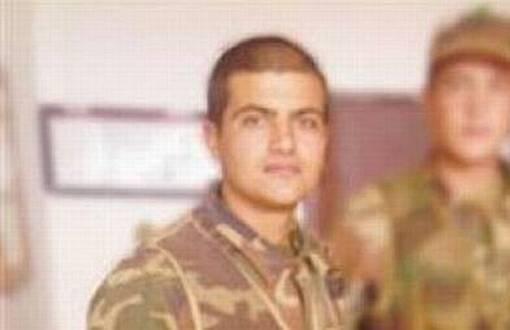Click to read the article in Turkish
The Ankara 1st Heavy Penal Court has handed down its ruling in the trial over the death of Uğur Kantar, who was tortured to death while he was doing his mandatory military service in Northern Cyprus.
At the final hearing of the retrial held in the capital city yesterday (June 30), defendant Fırat Keser has been sentenced to aggravated life imprisonment on charge of "causing death as a result of torture."
In a statement about the issue, the Progressive Lawyers Association (ÇHD) Ankara Branch has said, "In the Uğur Kantar case regarding his killing by torture during his mandatory military service in Cyprus, which our Association has been following since 2011, defedant Fırat Keser has been given an aggravated life sentence. Torture is a crime against humanity."
Making a statement on Twitter, the ÇHD Central Office has also stated, "We would like to once again remind the ones who abduct people, make them wait in basements for six months and beat people to death in [police/ gendarmerie] stations: Torture is a crime against humanity and the violation of statutory limitations does not apply to it."
'Failure to report crime' charge dropped
As reported by the state-run Anadolu Agency (AA), when the Presiding Judge of the Heavy Penal Court asked him his last words, defendant Fırat Keser said he was innocent and demanded his release.
Pronouncing its judgement afterwards, the court board has ruled that defendant Keser shall be sentenced to aggravated life imprisonment on charge of "causing death as a result of torture."
It has also ruled that the charge of "not reporting the crime" filed against defendants Süleyman Özdoğan, Özkan Belmen and Ahmet Yurdusevdi shall be dropped on the grounds of the violation of statutory limitations. Regarding defendant Ayhan Şentürk, a previously convicted military personnel, the court has concluded that "there is no ground for giving a ruling on him."
According to the ruling of the court, the case file of fugitive defendant Ayhan Arslan shall be separated from the others.
What happened?
While he was doing his military service in Northern Cyprus, conscript Uğur Kantar was locked up in the disciplinary ward (known as 'Disko' in Turkish) on July 25, 2011 and severely tortured there. Beaten, not given water and not allowed to go to the toilet by wardens for hours, Kantar passed out and was taken to a hospital after he had been kept in the sun handcuffed.
Referred from the Kyrenia Military Hospital to the Gülhane Military Medical Academy (GATA) in İstanbul, he lost his life on October 12, 2011.
Over the death of Kantar, soldiers Ayhan Arslan and Fırat Keser, who were the wardens in the disciplinary ward at the time, stood trial on charge of "severe torture due to its consequences" while soldier Recep Tekin was put on trial for "actual bodily harm" and Prison Director soldier Ayhan Şentürk for "misconduct in office as a result of negligence."
At the hearing of the trial held by a military court in Northern Cyprus on March 21, 2014, arrested defendants Fırat Keser and Ayhan Arslan were released. The Kantar family's attorney appealed against the ruling. The Adana Military Court rescinded the ruling of release.
While the defendants were arrested again following this court ruling, the Kyrenia Military Court ruled that Arslan and Keser should be given a life sentence on charge of "causing death as a result of torture."
After the Court of Cassation overturned the ruling, the file of the case was sent back to the Ankara 1st Heavy Penal Court as the military courts were abolished following the July 15 coup attempt in 2016.
That being the case, the Ankara Chief Public Prosecutor's Office lodged an indictment against six people and demanded an aggravated life sentence for defendant Keser, who allegedly kept Kantar waiting in the sun by handcuffing him to the chair and caused his death.
The indictment demanded that the criminal case filed against Süleyman Özdoğan, Özkan Belmen and Ahmet Yurdusevdi, who were plain soldiers in the related detention center, on charge of "not reporting the crime" be dropped due to the violation of statutory limitations.
Referring to the military personnel-defendant Ayhan Şentürk, the indictment indicated that he had been convicted and the pronouncement of his verdict had been deferred; accordingly, the indictment concluded that "there was no ground to hand down a ruling on him."
The heavy penal court has given a ruling in line with this. (AS/SD)







